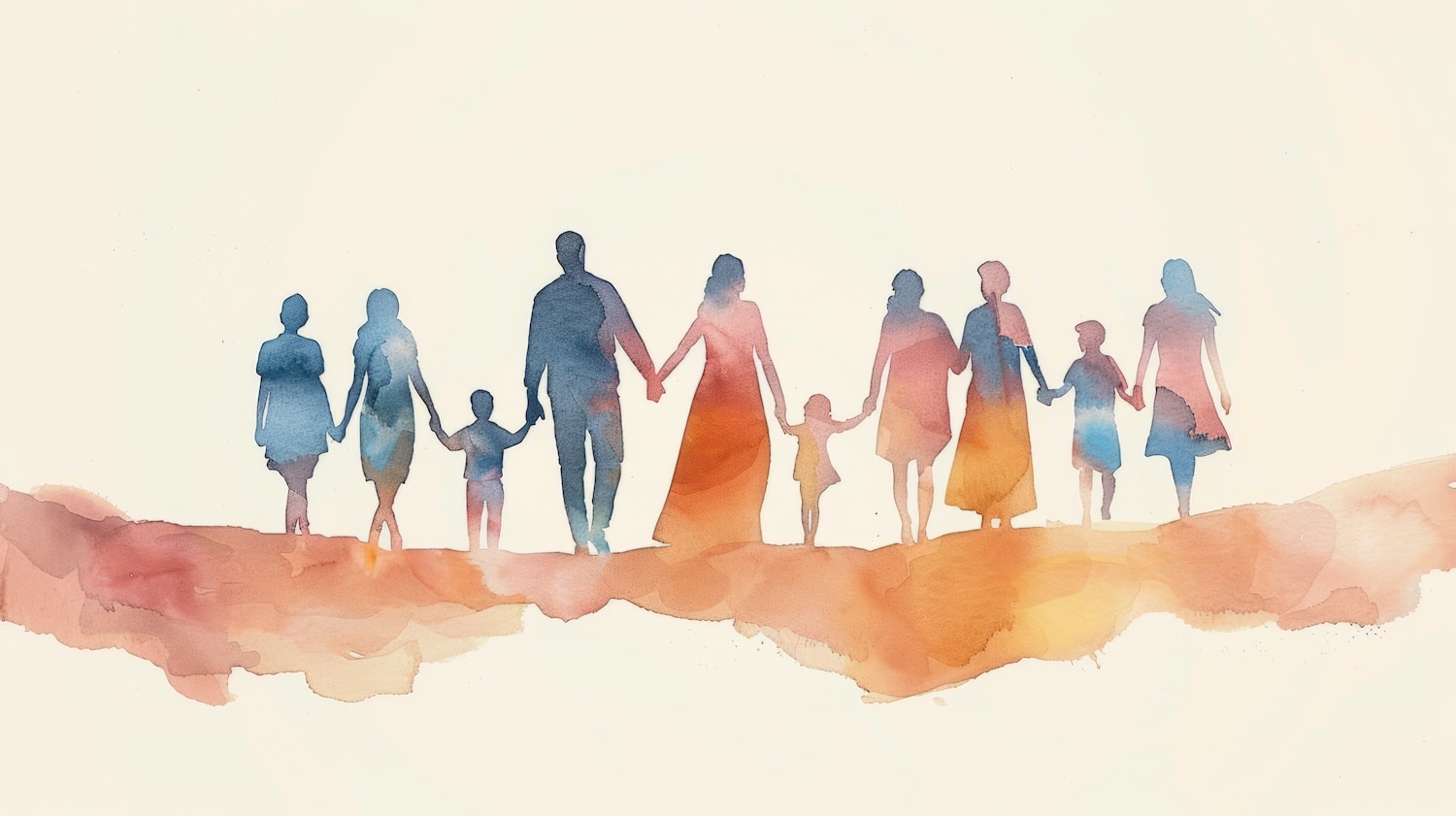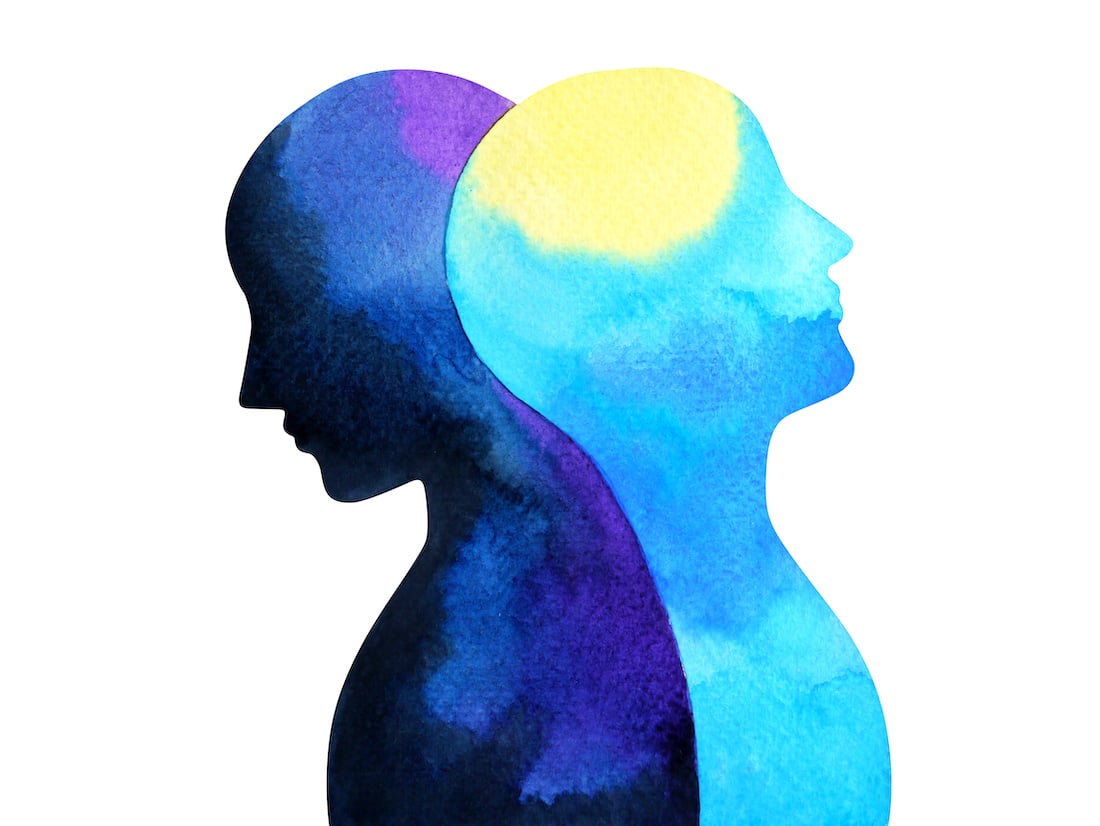Family, friends, neighbors, co-workers, even ourselves – many of the people we see every day, have symptoms of mental illness and aren’t even aware of it. In fact, numerous studies suggest that over half of mental illness cases are actually never formally diagnosed. The illnesses in focus include major depression, bipolar disorder, panic disorder and anxiety disorders.
It’s a fact that even people formally diagnosed with mental illness can receive generic treatment that fails to account for the person’s unique characteristics and needs; or even worse, they fail to receive any treatment at all. Mental health professionals must focus less on categorizing and more on providing individualized treatment. Many would be surprised to learn that even when twins are both diagnosed with schizophrenia and both receive the same exact treatment, very different treatment outcomes can indeed occur.
If things are this complex for those who are given a formal diagnosis, what about the other half of people with mental illness? Undiagnosed or misdiagnosed cases can lead to unresolved phobias, deepening depression and a plethora of behavioral issues throughout a person’s life.
The Case of the Categories
A growing number of psychiatrists, researchers, and clinicians agree that our current mental illness diagnostic system suffers from an illness of its own – a case of the categories. A person may meet half of the criteria for, say, major depression, and one-third of the criteria for generalized anxiety disorder and panic disorder. It’s very clear that this person struggles with mental illness. But because they don’t fulfill enough criteria for one specific illness or doesn’t fulfill certain types of criteria, they may not be given a formal diagnosis at all.
A mental illness rarely fits its textbook mold. Every case is unique, and many different factors interact to form the symptoms experienced by each individual. For example, a young adult with undiagnosed bipolar symptoms may also struggle with the symptoms of generalized anxiety disorder or, a woman with symptoms of depression may also show symptoms of trauma. However, in many medical settings people would simply be prescribed generic medications and told to be on their way or, never receive any treatment at all.
Statistics show the alarming consequences of an undiagnosed or untreated mental illness:
- People with schizophrenia die from health complications at twice or triple the rate of the general population.
- In the U.S., suicide claims a life roughly once every 15 minutes, with the alarming majority having an undiagnosed mental illness. This makes suicide the 3rd leading cause of death for young adults in the U.S.
- Roughly a quarter of all young adults in trouble with the law have symptoms of a serious mental illness.
- People living with serious mental illnesses live on average 25 years less than those without.
The Importance of a Diagnosis
How crucial is it for a person to receive a formal diagnosis? Very, according to many doctors and healthcare professors. While the absence of a diagnosis won’t affect individualized treatment outcomes, it may hamper a patient from accessing important medications and treatment options.
Current government regulations require patients to “prove” they have an illness requiring a specific drug in order to receive a subsidy for that drug. That proof is almost always a formal diagnosis.
While there are countless variations of every mental illness, people who fall under the same diagnosis will share at least a few significant symptoms. Those who receive a definitive diagnosis can research with some degree of confidence treatment options, potential complications, coping mechanisms, and other strategies to help ease their pain and live a fulfilling life. In contrast, undiagnosed people will have a much more difficult time finding the best possible treatment solutions.
Another reason to get diagnosed is to help researchers discover new treatment options. It’s easier to study a group of people with shared symptoms than individuals with varying ones.
A Diagnosis Is Only a Guide
There is nothing harmful about a diagnosis in and of itself. However, it is critical to note that a diagnosis alone shouldn’t dictate the course of treatment. Many doctors understand the shortcomings of using a diagnosis to label a patient and may issue one only to grant the patient access to beneficial medications and treatments.
When it comes to the actual method of treatment, there must be an individual focus. Fortunately, trends in mental health medicine are beginning to move toward a person’s unique physical, mental and emotional characteristics. Clinicians are working with patients to craft individualized treatment plans based on personalized needs and goals. In the future, there will hopefully be fewer technicalities standing between a person and the best treatment options available.
Just as not all fruits are apples, not all people with schizophrenia, depression, bipolar disorder, etc. will display the same symptoms or respond the same way to a specific treatment. Individualized treatment centers recognize that, and are focusing more on specialized, non-traditional treatments. These treatments can include art therapy, music therapy, and recreational therapy, all of which helps to understand their illness and better manage symptoms. Coupled with the appropriate medications, counseling and education, these treatments can very well save the lives of undiagnosed and diagnosed patients alike.
Psychiatrists and clinicians are customizing treatments to fit each patients’ unique needs. The overall goal is to provide the best treatment, not confine patients into convenient diagnostic categories.
Undiagnosed Mental Illness in the Workplace
Studies show that undiagnosed mental disorders may hinder workplace productivity. For example, undiagnosed social anxiety disorder and depression often lead to sleep disorders and emotional issues. Over time, these forces can compel a person to skip work, take extended sick leave, or continue working with hindered cognitive abilities. Because the person is unaware that a problem exists, they never see a doctor and therefore never obtain a diagnosis or receive treatment.
The World Health Organization reports that mental illnesses and behavioral disorders account for roughly a quarter of all time lost to disability, significantly more than any other illness or disease.
Reduced productivity doesn’t apply only to workers with full-fledged mental illnesses, but also to those who display some symptoms that meet some of the diagnostic requirements. Researchers at the University of Albany SUNY used national workplace participation data to analyze the relationship between productivity and symptoms of mental illness.
The study centered looked at workplace outcomes from people with symptoms of panic disorder, social phobia, generalized anxiety disorder, and major depression. The results highlighted symptoms related to depression and anxiety as significant factors in job performance. The main findings showed that:
- For people with symptoms of major depression, sleep disorders (insomnia and hypersomnia), emotional imbalances, and indecisiveness had the most significant effect on job performance. Also, women with major depression struggled with fatigue on the job more often than men.
- For people with symptoms of generalized anxiety disorder, the length of the anxiety attacks had the most significant effect on job performance. Workers also struggled with worry, nervousness, and related anxiety symptoms.
- Many workers who fulfilled some, but not all, of the diagnostic criteria for anxiety or depression displayed similar issues with performance and focus as those with a full diagnosis.
- Depression symptoms affected job performance to a greater extent than anxiety symptoms. Panic disorder and social phobia symptoms had only minor impacts on job performance.
Targeting the Symptoms, Not the Categories
In light of recent studies, mental health experts, clinicians and lawmakers are rethinking the influence that formal diagnosis categorization has on treatment. Changes are helping people get the treatment they need. More people now receive individualized treatment that considers their specific symptoms, co-occurring illnesses, and medical history in lieu of a generic formal diagnosis.
The bottom line is that, officially diagnosed or not, everyone should be evaluated on a symptom-by-symptom basis to determine the best treatment options. Additionally, the absence of a formal diagnosis doesn’t mean a person is healthy. Mental health professionals are still necessary to help understand and come to terms with symptoms and ultimately reach or exceed the appropriate treatment goals.
Pasadena Villa offers individualized treatment options for people suffering with mental illness. We set out to create a comforting environment while promoting mental health and a socially fulfilling future. Our mental health professionals observes residents in actual social situations and incorporate observations directly into the resident’s ongoing treatment plan. This highly personalized attention makes the Pasadena Villa treatment experience more appropriate, relevant and beneficial for each of our residents, especially when compared to any other residential treatment mental health services available for young adults.
Pasadena Villa’s Smoky Mountain Lodge is an adult intensive psychiatric residential treatment centers for clients with serious mental illnesses. We also provide other individualized therapy programs, step-down residential programs, and less intensive mental health services, such as Community Residential Homes, Supportive Housing, Day Treatment Programs and Life Skills training. Pasadena Villa’s Outpatient Center in Raleigh, North Carolina offers partial hospitalization (PHP) and an intensive outpatient program (PHP). If you or someone you know may need mental health services, please complete our contact form or call us at 407-215-2519 for more information.
Sources:
- DailyLife.com
- PsychCentral.com
- ICCD.org
- Ctvnews.ca



